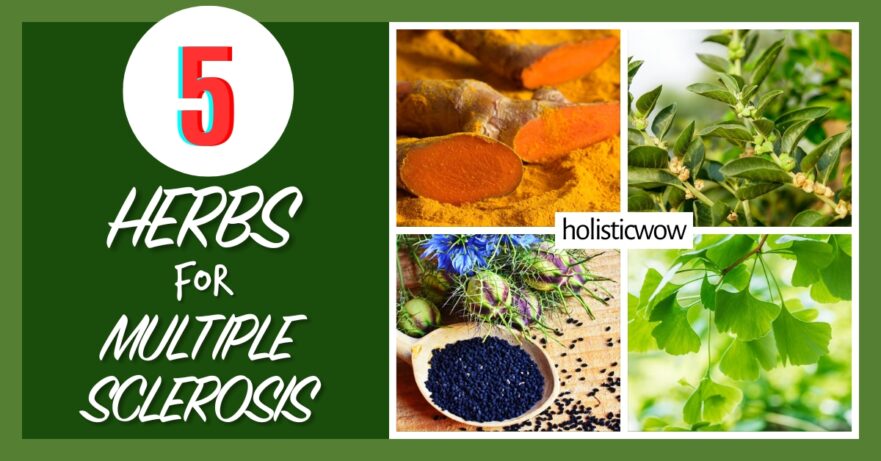In this article about herbs for multiple sclerosis:
🌿 Best Herbs for Multiple Sclerosis | 📜 Herbal Preparations and Recipes for Multiple Sclerosis Support | ☯️ Integrating Herbs into Daily Life for Multiple Sclerosis Support | 🌱 Navigating Herbs Safely
Multiple sclerosis (MS) is a chronic neurological condition affecting the central nervous system. It causes various symptoms, including fatigue, mobility, and cognitive changes. These symptoms can significantly impact daily life and overall well-being.
Certain herbs, such as turmeric, ginkgo, and ashwagandha, offer potential benefits for MS management. They may help reduce inflammation, improve cognitive function, and boost energy levels. These natural remedies can complement conventional MS treatments.
We explores five herbs commonly used for MS support. We’ll discuss their potential benefits, current research, and how to incorporate them safely into your MS management plan. Always consult your healthcare provider before starting any new herbal regimen.
Key Takeaways
- 🌿 Herbal Anti-Inflammatory Action: Turmeric and ginkgo may have anti-inflammatory properties that could support MS symptom management and overall health.
- 🌿 Fatigue Management: Ashwagandha and ginseng might help manage fatigue associated with MS, potentially enhancing energy levels.
- 🧠 Cognitive Function Support: Though results vary, Ginkgo biloba may offer some cognitive support for MS patients, particularly in areas like attention and memory.
- ✨ Neuroprotective Potential: Black seed and turmeric may exhibit neuroprotective effects, which could support nerve health in MS.
- 🩺 Complementary Approach: Herbal remedies can complement MS treatments but should always be used under medical supervision to ensure safety and effectiveness.
🌿 Best Herbs for Multiple Sclerosis
Multiple sclerosis (MS) is a complex neurological condition that affects the central nervous system. We explore several herbs that may provide complementary support for MS symptoms, including turmeric (Curcuma longa), ginkgo (Ginkgo biloba), ashwagandha (Withania somnifera), ginseng (Panax ginseng), and black seed (Nigella sativa).
MS occurs when the immune system mistakenly attacks the protective covering of nerve fibers, called myelin, in the brain and spinal cord. This damage disrupts communication between the brain and the rest of the body, leading to various symptoms. Common signs of MS include fatigue, difficulty walking, numbness or tingling in various parts of the body, muscle weakness or spasms, and problems with balance and coordination.
Vision problems are also frequent in MS, such as partial or complete loss of vision, usually in one eye at a time (optic neuritis). Many people with MS experience cognitive changes, including difficulties with memory, attention, and problem-solving. Bladder and bowel problems can occur, as well as sexual dysfunction.
The exact cause of MS is unknown, but it’s believed to involve a combination of genetic and environmental factors. MS is typically diagnosed between the ages of 20 and 40, and it affects women more often than men. The disease can take different courses, with symptoms occurring in isolated attacks (relapsing forms) or building up over time (progressive forms).
Understanding these symptoms and their impact on daily life is crucial for developing effective management strategies, including the potential use of herbal remedies as adjuncts to conventional treatments. While some herbs may offer symptomatic relief or immune modulation, it is important to use them under medical supervision as part of an integrative approach.
Turmeric (Curcuma longa)
Turmeric (Curcuma longa) is a bright yellow spice used in traditional medicine for centuries, especially in India and Southeast Asia. Its main active ingredient, curcumin, is known for its potent anti-inflammatory and antioxidant benefits, which may help people with multiple sclerosis (MS). Early research suggests that curcumin might reduce inflammation in the nervous system and help protect nerve cells and the myelin sheath, the protective layer around nerves that is damaged in MS [1]. Curcumin also seems to calm the immune system by reducing inflammation, which is important because MS is caused by the immune system attacking healthy nerves [2]. While these findings are promising, most research so far has been done in the early stages. Another key point is that the body doesn’t easily absorb curcumin. For better results, it should be taken with a substance like piperine (found in black pepper), which helps boost its absorption.
Ginkgo (Ginkgo biloba)
Ginkgo (Ginkgo biloba) is one of the oldest known tree species and has been used in traditional medicine for thousands of years. It is also known for its potential cognitive benefits. In multiple sclerosis (MS), ginkgo may help support cognitive function and reduce fatigue, two common symptoms. Some research suggests that ginkgo’s antioxidant and anti-inflammatory properties could protect nerve cells and reduce inflammation, which are important for MS management [3]. Ginkgo’s active compounds may reduce oxidative stress and regulate inflammatory pathways involved in MS. While preclinical evidence is promising, more well-designed clinical studies are needed to confirm its effectiveness in MS patients [4]. Though ginkgo shows potential, its optimal dosage and long-term effects in treating MS symptoms are still being investigated.
Ashwagandha (Withania somnifera)
Ashwagandha (Withania somnifera) is a popular herb in Ayurvedic medicine known for its adaptogenic properties, which may help the body manage stress. In the context of multiple sclerosis (MS), an autoimmune disease, ashwagandha’s neuroprotective and anti-inflammatory effects might offer potential benefits. A study showed that ashwagandha improved memory, attention, and executive function in individuals with mild cognitive impairment, suggesting potential relevance for addressing cognitive issues in MS. However, specific research on MS is still needed [5]. Ashwagandha has demonstrated neuroprotective properties in various brain disorders, which could be relevant for MS due to its effects on cognitive and neurological health [6]. While promising, more human studies are needed to confirm ashwagandha’s effectiveness and safety, specifically for multiple sclerosis.
Ginseng (Panax ginseng)
Ginseng (Panax ginseng) is a root used in traditional Chinese medicine for centuries, and it is known for boosting energy and reducing stress. In the context of multiple sclerosis (MS), ginseng may help with fatigue, a common symptom. A study found that three months of ginseng treatment significantly reduced fatigue and improved quality of life in MS patients compared to a placebo [7]. Additionally, ginseng’s neuroprotective and anti-inflammatory properties may benefit neurological health, although research on slowing MS progression is still lacking [8]. While promising, more studies are needed to confirm ginseng’s effects on MS and determine the best dosage.
Black seed (Nigella sativa)
Black seed (Nigella sativa) has long been used in traditional medicine for its anti-inflammatory and antioxidant properties. Studies suggest that black seed oil and its active compound, thymoquinone, may help reduce inflammation and oxidative stress, which are factors in multiple sclerosis (MS) progression. Research also indicates that black seed oil may support nerve repair and protect brain cells in MS-like conditions, though more direct studies with MS patients are needed to confirm these benefits. Further research is required to confirm black seed oil’s role in MS, optimal dosage, and long-term safety. [9] [10]
📜 Herbal Preparations and Recipes for Multiple Sclerosis Support
These herbal tea blends are designed to address various symptoms associated with multiple sclerosis (MS). Each recipe combines herbs commonly used for their potential benefits in managing MS symptoms. Remember to consult your healthcare provider before starting any new herbal regimen, especially if you take medications or have other health conditions.
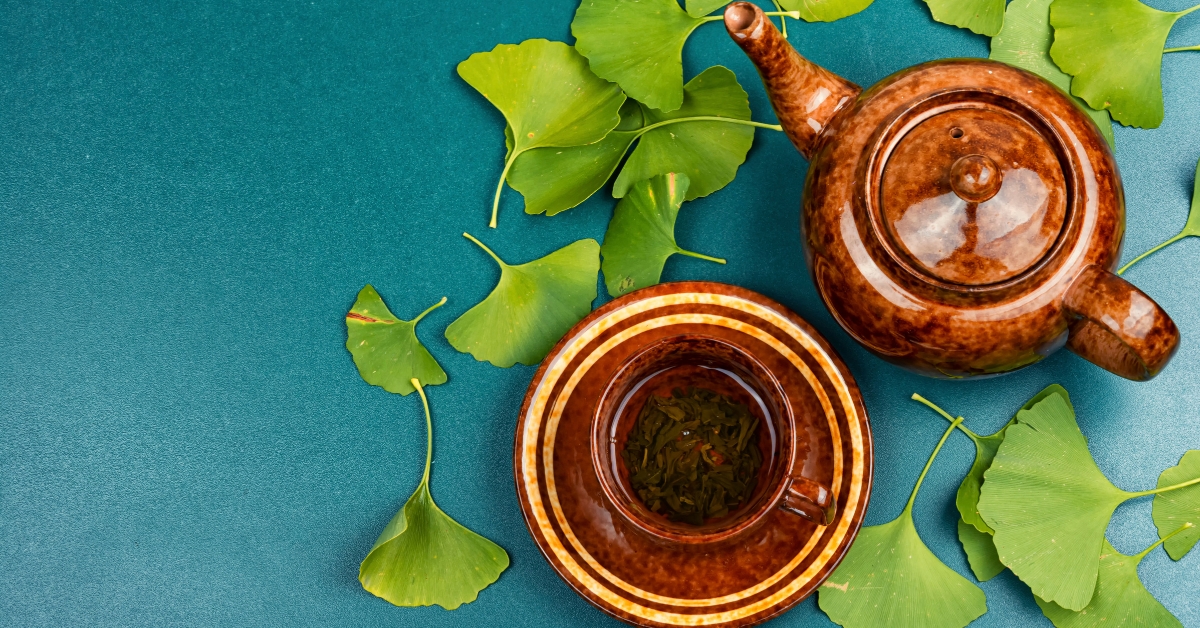
Mild Anti-Inflammatory Blend
Ingredients:
- 1 teaspoon dried turmeric root
- 1 teaspoon dried ginkgo leaves
- 1 cup of boiling water
Preparation:
- Mix the herbs in a teapot.
- Pour boiling water over the herbs and steep for 10 minutes.
- Strain and drink once daily, preferably in the morning, to help manage inflammation and support cognitive function.
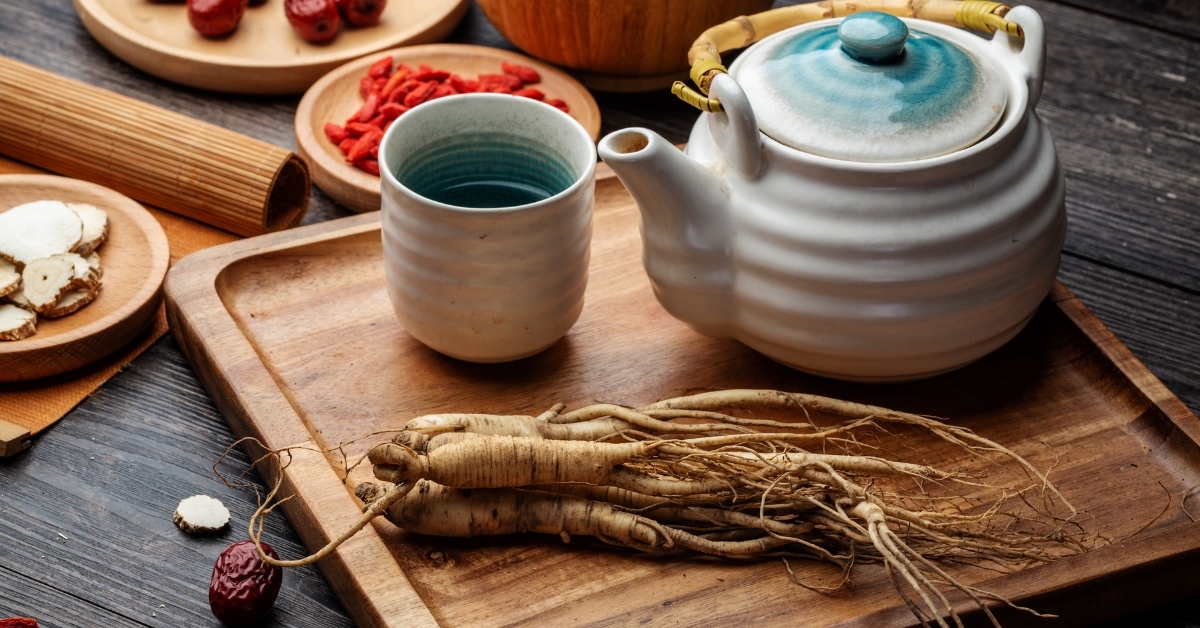
Fatigue Relief Tea
Ingredients:
- ½ teaspoon dried ashwagandha root
- ½ teaspoon dried ginseng root
- ½ teaspoon dried ginkgo leaves
- 1 cup of boiling water
Preparation:
- Combine all dried herbs in a teapot.
- Add boiling water and steep for 15 minutes.
- Strain and drink in the morning to help reduce fatigue and support energy levels.
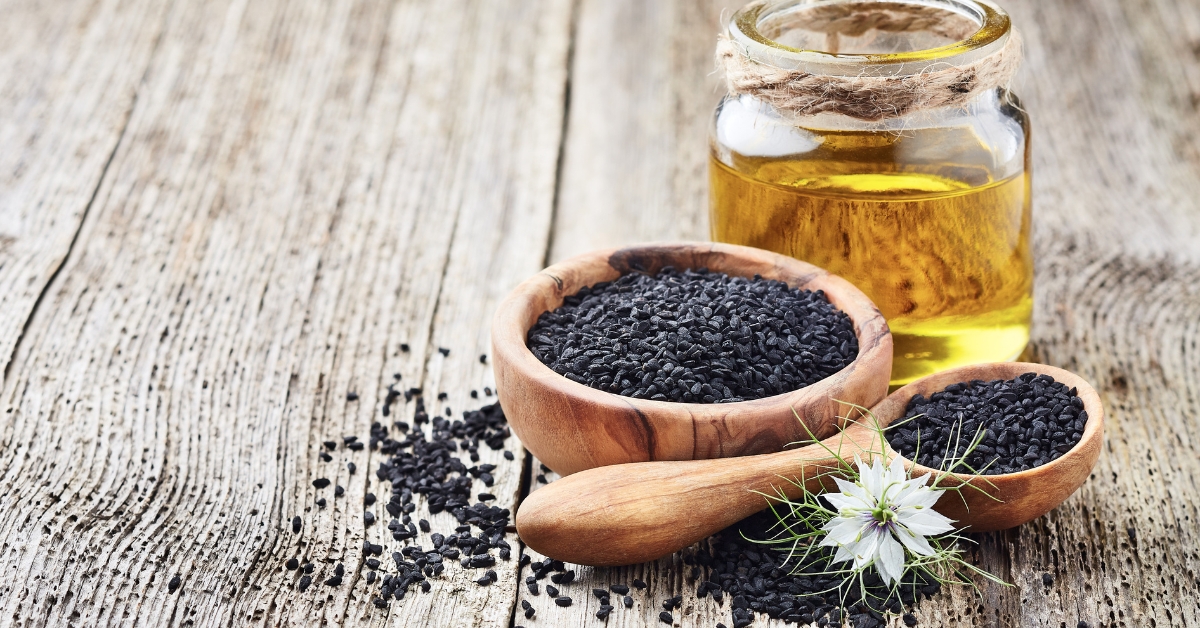
Neuroprotective Support Blend
Ingredients:
- 1 teaspoon dried turmeric root
- ½ teaspoon dried ashwagandha root
- ½ teaspoon dried ginkgo leaves
- ½ teaspoon ground black seed
- 1 cup of boiling water
Preparation:
- Mix all herbs in a teapot.
- Pour boiling water over the herbs and steep for 12-15 minutes.
- Strain and drink once daily to support nerve health and manage inflammation.
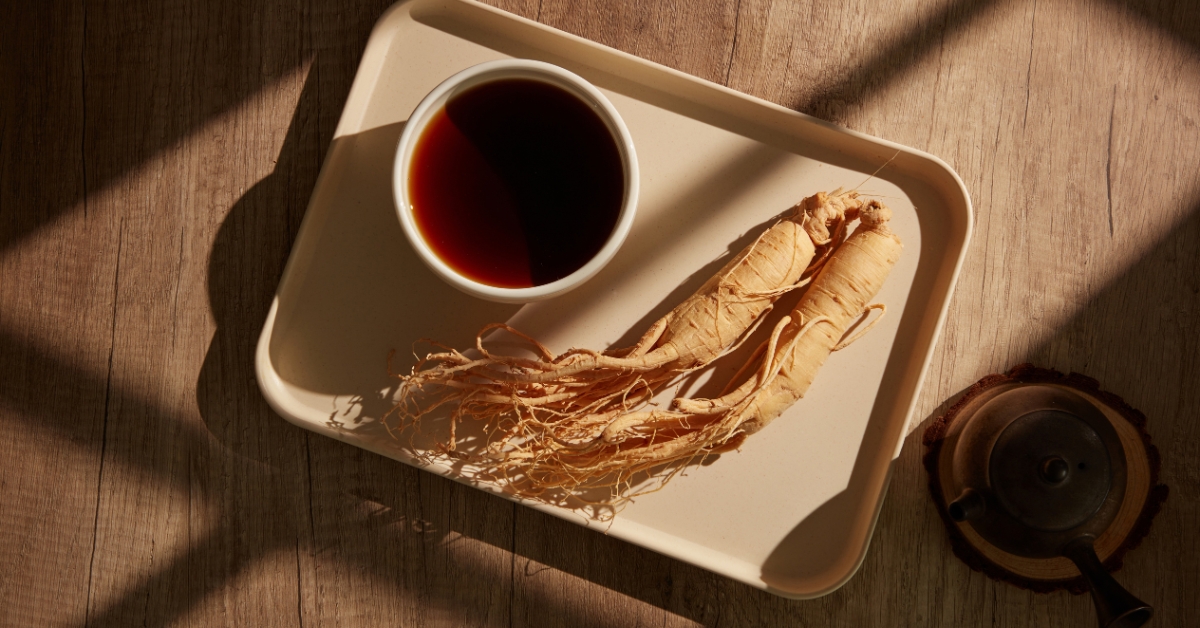
Cognitive Function Enhancer
Ingredients:
- ½ teaspoon dried ginkgo leaves
- ½ teaspoon dried ginseng root
- ½ teaspoon dried ashwagandha root
- ½ teaspoon dried turmeric root
- 1 cup of boiling water
Preparation:
- Combine all herbs in a teapot.
- Add boiling water and steep for 10-12 minutes.
- Strain and drink in the morning or early afternoon to support cognitive function and mental clarity.
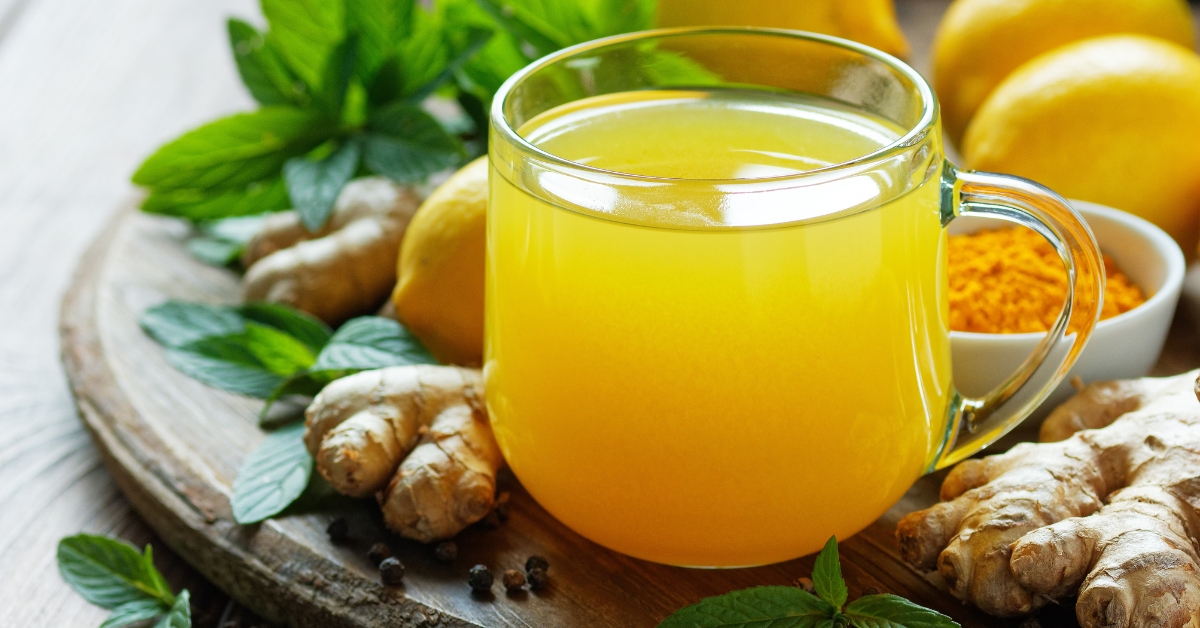
Comprehensive MS Support Tea
Ingredients:
- 1 teaspoon dried turmeric root
- ½ teaspoon dried ginkgo leaves
- ½ teaspoon dried ashwagandha root
- ½ teaspoon dried ginseng root
- ½ teaspoon ground black seed
- 1 cup of boiling water
Preparation:
- Mix all herbs in a teapot.
- Pour boiling water over the herbs and steep for 15-20 minutes.
- Strain and drink once daily, preferably in the morning, for overall MS symptom support.
These tea blends are designed to be easily incorporated into daily routines, offering a holistic approach to managing MS symptoms naturally. Adjust the blends according to personal taste preferences and tolerance. Always start with lower doses and increase gradually under the guidance of a healthcare professional.
☯️ Integrating Herbs into Daily Life for Multiple Sclerosis Support
Incorporating herbs into your daily routine can be a supportive addition to conventional MS treatments. Here are some practical tips for using herbs effectively and complementary practices to enhance their benefits.
Daily Use and Lifestyle Integration
- 🫖 Herbal Teas: Start your day with a cup of the Mild Anti-Inflammatory Blend or Fatigue Relief Tea. These can become a soothing morning ritual that may help prepare you for the day ahead. In the afternoon, consider the Cognitive Function Enhancer to support mental clarity. However, avoid taking ginseng later in the day as it can interfere with sleep.
- 💚 Herbal Supplements: If you prefer not to drink herbal teas, consider taking herbs like turmeric, ginkgo, or ashwagandha in capsule or tincture form. These can be easily incorporated into your daily supplement regimen, but dosage and quality should be reviewed with a healthcare provider.
- 🥗 Culinary Uses: Incorporate turmeric and black seed into your cooking. Add turmeric to soups, stews, or rice dishes, and use black seed as a seasoning for salads or roasted vegetables. Black seed oil should not exceed recommended doses as high amounts may cause digestive issues.
Additional Practices to Support MS Management
- 🥦 Dietary Adjustments: Focus on an anti-inflammatory diet rich in fruits, vegetables, whole grains, and omega-3 fatty acids. This can complement herbal practices and support overall health, but consult a nutritionist for tailored advice.
- 🏃♀️ Regular Exercise: Engage in gentle, regular physical activity such as swimming, yoga, or walking. Exercise can help manage MS symptoms and improve mood, though intensity should be adjusted to avoid fatigue.
- 🧘♀️ Stress Management: Practice stress-reduction techniques like deep breathing, meditation, or progressive muscle relaxation. These can aid in managing stress, which often aggravates MS symptoms.
- 😴 Adequate Rest: Ensure you’re getting enough quality sleep. Valerian tea may help promote relaxation before bedtime, but monitor its use as it may cause drowsiness in some individuals.
- 💦 Stay Cool: MS symptoms can worsen with heat. Use cooling strategies, like cool showers or staying in air-conditioned environments during hot weather.
Integrating these herbs and practices into daily life may help manage MS symptoms and enhance overall well-being. While herbs can offer benefits, responses vary among individuals. Start with smaller doses to see how your body reacts and consult with your healthcare provider as needed.
🌱 Navigating Herbs Safely
Starting with small doses is the first step when adding herbal remedies to your health routine. This approach lets you see how you respond and adjust amounts for the best effect, keeping safety in mind. While many herbs are safe, everyone’s body reacts differently. If you notice any side effects, it’s important to stop and think about what might be causing them.
Remember, herbs can sometimes interact with prescription medicines. These interactions might make your medicines work too well or not well enough, so talking to a healthcare provider or an herbalist is essential. This is especially crucial if you’re pregnant, breastfeeding, taking medications regularly, or have an existing health condition. Getting advice tailored to your situation can help you avoid any unnecessary risks.
For kids and older adults, being extra careful with herbs is important. Their bodies might react more strongly to herbal remedies, and the chance of side effects or interactions could be greater. Before giving herbal treatments to children or elderly family members, getting advice from a professional is a must to ensure their safety.
By being cautious and seeking expert advice when needed, you can make herbal remedies a safe part of your wellness plan. This careful approach allows you to enjoy the benefits of herbs while keeping yourself and your family safe.
We explored the potential benefits of several herbal remedies for managing multiple sclerosis (MS) symptoms. The herbs discussed include turmeric, ginkgo, ashwagandha, ginseng, and black seed. Each of these herbs has unique properties that may help address various aspects of MS, such as inflammation, fatigue, cognitive function, and overall well-being.
Turmeric and ginkgo promise to reduce inflammation and protect nerve cells, while ashwagandha may help with stress management and fatigue. Ginseng could potentially boost energy levels and improve cognitive function, and black seed may have neuroprotective effects.
We provided practical ways to incorporate these herbs into daily life, including herbal tea recipes and suggestions for dietary integration. We also emphasized the importance of complementary lifestyle practices like maintaining an anti-inflammatory diet, regular exercise, stress management, and adequate rest.
While these herbal remedies show potential, it’s important to note that more research is needed to fully understand their effects on MS. Always consult with a healthcare provider before starting any new herbal regimen, especially when taking medications or having other health conditions. Herbal effects can vary among individuals, and it’s best to start with lower doses under medical supervision.
FAQ
Are herbal remedies safe for people with multiple sclerosis?
Herbal remedies may offer benefits for some people with multiple sclerosis, but safety is an essential consideration. Many herbs have anti-inflammatory and antioxidant properties that might help manage MS symptoms. However, herbs can interact with medications and potentially affect the immune system. For example, turmeric may increase the risk of bleeding with blood thinners. At the same time, St. John's wort can interact with certain medications used to manage MS. Additionally, some herbs might stimulate immune activity, which could affect MS symptoms, as MS is an autoimmune condition. People with MS must consult their healthcare provider before starting any herbal regimen. A doctor can provide personalized guidance on potential interactions, appropriate dosages, and whether specific herbs suit an individual's MS type and current treatment plan. Choosing high-quality, standardized herbal products from reputable sources is also important to ensure purity, potency, and safety.
Can ginkgo biloba improve cognitive function in MS patients?
Research on ginkgo biloba’s effects on cognitive function in multiple sclerosis (MS) patients has shown mixed results. While this herb is known for its potential to support brain circulation and provide antioxidant effects, the findings are inconsistent. Some studies have reported improvements in specific cognitive areas, such as attention and mental flexibility, but others have found no significant effects compared to a placebo. For instance, one clinical trial found that MS patients taking 240 mg of ginkgo extract daily for 12 weeks did not experience significant improvements in overall cognitive performance compared to a placebo. In contrast, some smaller studies have suggested potential benefits in specific cognitive tasks, such as processing speed and mental flexibility. However, these effects were limited to certain tests and did not show a broad improvement across various cognitive domains. The effectiveness of ginkgo biloba may vary depending on the individual, the severity of cognitive symptoms, and other health factors. While ginkgo is generally considered safe, it can interact with blood thinners and other medications. As with any supplement, MS patients should consult their healthcare provider before starting ginkgo to assess potential interactions and appropriateness based on their specific health needs.
How effective is turmeric in managing MS symptoms?
Turmeric, especially its active compound curcumin, has gained attention for its potential role in managing multiple sclerosis (MS) symptoms due to its anti-inflammatory and antioxidant properties. Research in laboratory models of MS has shown that curcumin may help reduce inflammation in the central nervous system and protect nerve cells from damage. In these studies, curcumin appeared to lessen the severity of MS-like symptoms and possibly slow disease progression. However, it is important to note that most of these findings come from preclinical research, and human studies on turmeric’s effectiveness in MS are limited. One key challenge with turmeric is its low bioavailability, meaning curcumin is not well-absorbed by the body. Some research suggests that combining turmeric with black pepper (containing piperine) or consuming it with fats can enhance absorption, making it potentially more effective. While turmeric is generally considered safe, high doses might cause gastrointestinal discomfort and may interact with blood-thinning medications. More clinical trials are needed to establish turmeric supplementation's optimal dosage and long-term effects in MS patients. As always, individuals with MS should consult their healthcare provider before adding turmeric supplements to their regimen.

